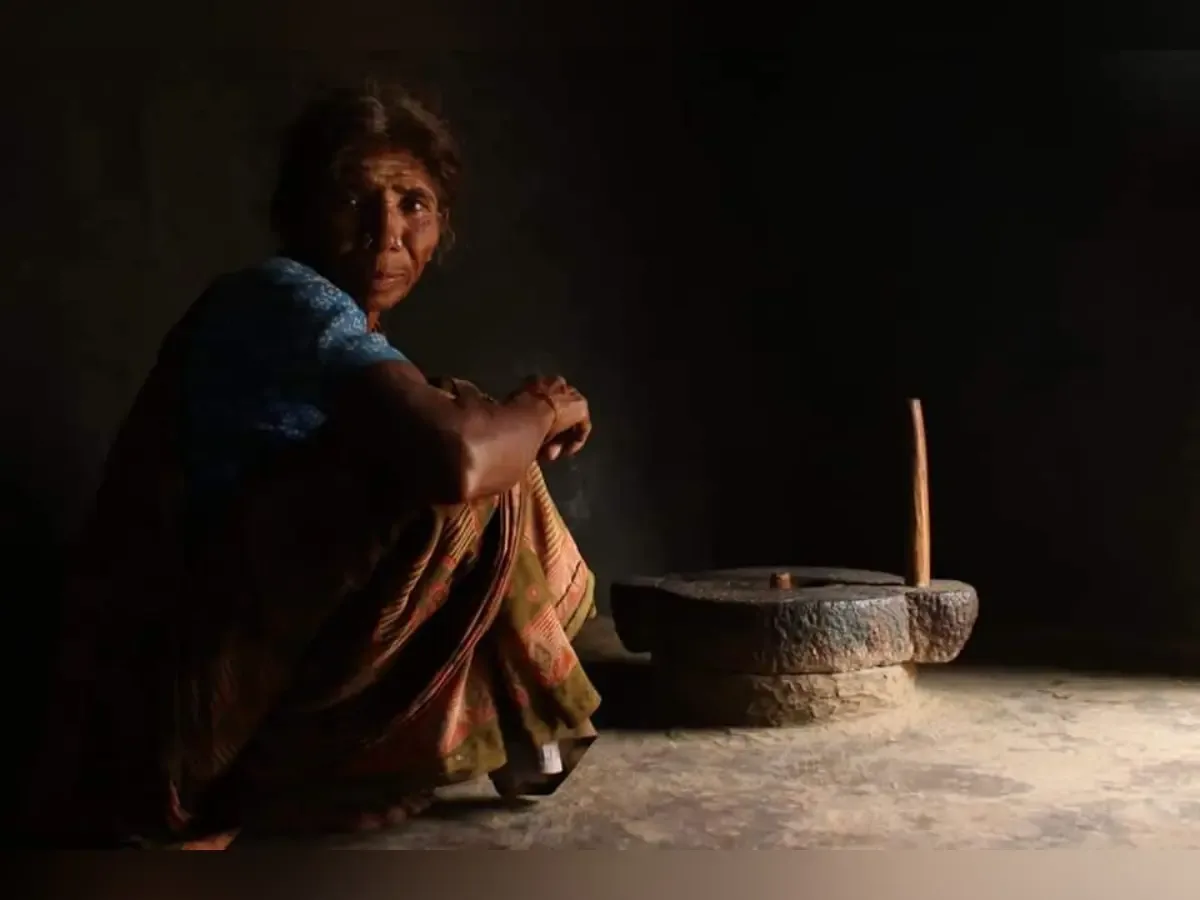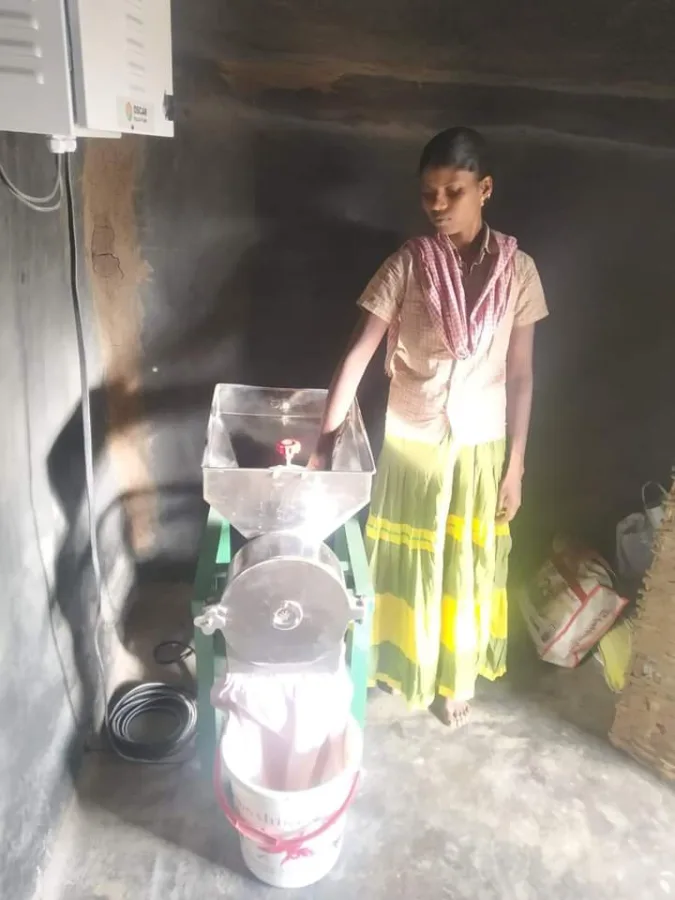Read in : தமிழ்
A solar-powered millet milling machine has brought rays of sunshine to the lives of the people living in a tribal-dominated village, who are happy that the machine has mitigated their difficulties in food preparation.
Kathirimalai located in the Anthiyur area of Erode district is home to 75 families of a hill tribe. The tribal village has no link road, electricity or irrigation facility. The only form of agriculture the locals are engaged in is what’s called ‘maanavaari’ farming that is left to the mercy of the skies. They cultivate grains such as ragi, bajra, millet and corn on rain-fed farm lands. These grains are their staple food.
On an average, a family requires more than 75 kg of millet flour a year and the whole village five tons. The people have to first clean the grains and dry them up before grinding them with the help of the traditional crude technology of a stone grinder. As there is no milling machine owing to the lack of electricity in the village, the people found preparation of food for their daily sustenance and survival highly tedious, time-consuming and cumbersome.
By way of finding an alternative, several families would sell the millets and cereals they cultivated and buy rice and other provisions supplied by the government. However, owing to the use of the same type of food, the people had nutrient deficiencies that caused many of them to fall ill often. Only tubers were available as an alternative food for them.
The tribal people used to go on foot in groups through the thick forest for eight km down from the 3,500-foot hill and get their grains and millets ground in the milling centres in the town. But it was a trek fraught with risks, which was outright impossible during the rainy season
People from the families with nutrient deficiencies then used to go on foot in groups through the thick forest for eight km down from the 3,500-foot hill to get their grains and millets ground in the milling centres in the town. But it was a trek fraught with risks, which was outright impossible during the rainy season.
Venugopal, a tribal welfare activist, who manufactured and distributed solar-powered water pumps in Erode, heard about the tribal people’s difficulties in getting their millets ground. A milling machine located on the hill itself would spare the tribals the trouble of going down to the town, he thought, and got a draft project report ready with which he approached Erode District Collector Krishnan. Canara Bank offered financial assistance for the project.
Also Read: Other states’ tribal folk forced into ‘bonded labour’ in TN
A solar-powered 2 HP flour grinder was designed by Oscar company run by Venugopal and later modified. The machine was tested for two months and then taken to the tribal hill village where it was operated on an experimental basis.

The traditional flour mill used in villages
The solar-powered flour milling machine is now operating successfully and has made a big difference to the village which does not have electricity. As if this new facility has rubbed off on the overall development of the village, the state government has launched the work of laying a road there under the Puthuyir project.
As the milling machine is solar-powered, it runs on renewable energy and therefore causes no pollution at all. Moreover it is a catalyst for value addition to the locally cultivated ragi, bajra and other millets. This transformation has the potential of enhancing the people’s economic condition.
Roja, a tribal woman living in Kathirimalai village, runs the solar-powered flour mill operating in a hut. She is paid a remuneration, though small, from the service charges paid by the villagers for grinding the grains. The fund collected from the service charge is also used for common causes in the tribal village.
Just as the proverbial ‘small step, big leap,’ a small solar-powered machine is set to bring about a big change in the tribal village tucked away in a hill over 3,000 feet high.
Read in : தமிழ்
